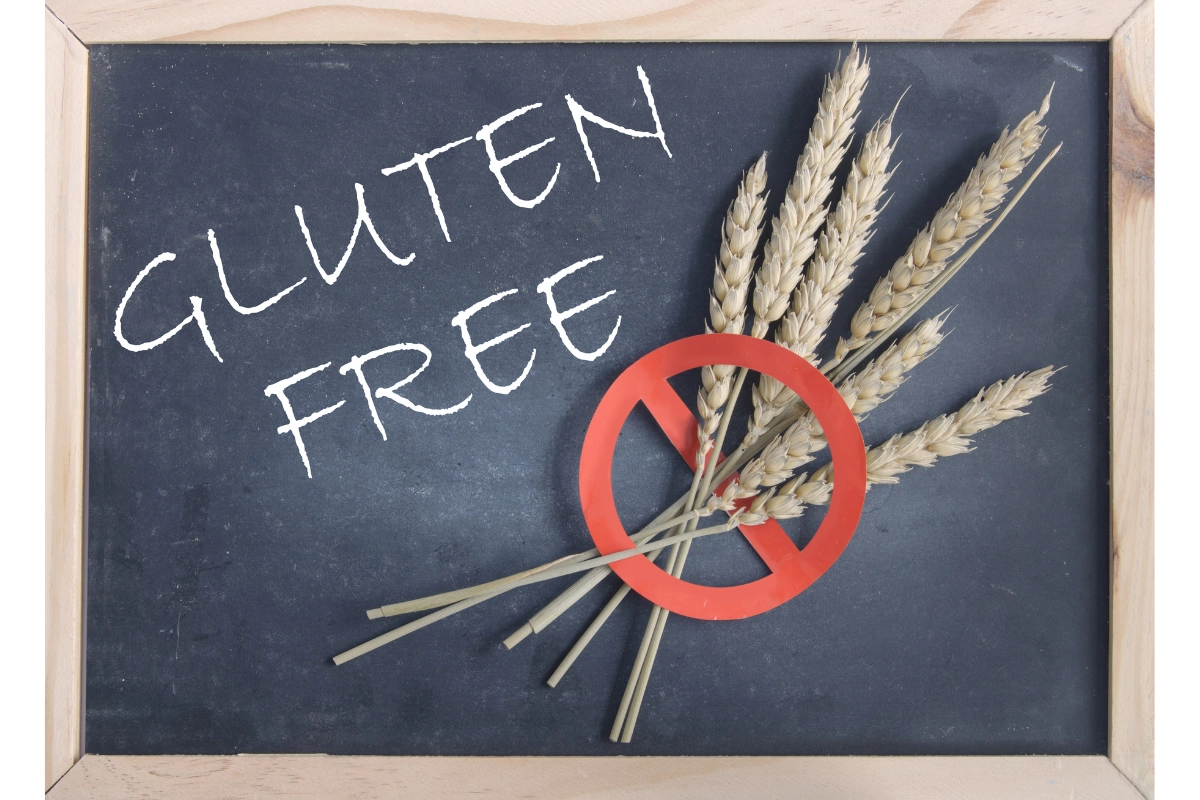What are the worst foods for gut health and what does consuming these foods do to your gut?
Consuming the wrong type of grains, such as those that are highly processed or contain gluten, can lead to inflammation in the gut and disrupt the balance of healthy bacteria. This can cause digestive issues, such as bloating, gas, and diarrhea, and may even contribute to more serious conditions like leaky gut syndrome. It’s important to choose whole, unprocessed grains and listen to your body to determine which types work best for you.

Grains Versus Gluten-Free Grains
If you’re experiencing gut health issues, it could be due to the type of foods, including the type of grains, you are consuming. IBD, celiac, and other gut disorders can be improved by incorporating certain beneficial grains into your diet.
Some of the best grains for gut health include quinoa, brown rice, oats, and buckwheat. These grains are high in fiber and can help promote healthy digestion and reduce inflammation in the gut. A recent study has shown that sorghum bicolor also known as great millet has a beneficial effect on gut health. It’s important to talk to your doctor or a registered dietitian before making any major changes to your diet.
Foods to Avoid (for a Healthy Gut)
Maintaining good gut health is important for overall well-being, and certain foods can have a negative impact on the digestive system. For individuals with gut health issues, it is important to avoid certain grains and other foods that can exacerbate symptoms and worsen certain gut disorders. By making informed dietary choices, individuals can support their gut health and improve their overall health and wellness. Some of the offending foods are:

Processed Foods
Processed foods are often high in sugar, salt, and unhealthy fats, which can disrupt the balance of bacteria in the gut. They also lack fiber, which is essential for maintaining a healthy gut microbiome.
Artificial Sweeteners
Artificial sweeteners, such as aspartame and sucralose, can cause digestive issues such as bloating, gas, and diarrhea. They can also disrupt the balance of bacteria in the gut.

Fried Foods
Fried foods are high in unhealthy fats and can be difficult to digest, leading to inflammation in the gut. They can also disrupt the balance of bacteria in the gut.
Dairy Products
Dairy products, such as milk and cheese, can be difficult to digest for some people, leading to digestive issues such as bloating, gas, and diarrhea. They can also cause inflammation in the gut.

Red Meat
Red meat is high in saturated fat, which can lead to inflammation in the gut. It can also disrupt the balance of bacteria in the gut and increase the risk of colon cancer.
Alcohol
Alcohol can irritate the lining of the gut and disrupt the balance of bacteria in the gut. It can also lead to inflammation in the gut and increase the risk of digestive disorders.

Certain Types of Grains
Grains known to be harmful for certain types of gut disorders are as follows.
Gluten and Other Grains
Gluten is a protein found in wheat, barley, and rye. For people with celiac disease or gluten sensitivity, consuming gluten can cause digestive issues such as bloating, gas, and diarrhea. It can also lead to inflammation in the gut.
Some of the worst grains for gut health include wheat, barley, and rye, which contain gluten and can cause inflammation and digestive issues in some people. Other grains that may be problematic for gut health include corn, oats, and rice, which can be difficult to digest and may cause bloating or other symptoms in some individuals.
How These 6 Grains Can Harm Your Gut Health
In general, grains are considered a part of a healthy diet. Whole grains are beneficial for most people. However, if you’re experiencing gut health issues, it could be due to the type of grains you’re consuming. Find out which six grains to suspect and possibly avoid to improve your gut health. This may take some trial and error to weed out the offending grains, depending on your particular symptoms.

Barley and rye, along with wheat, are known to contain gluten which can cause gut inflammation and digestive issues for some people. Additionally, barley and rye contain a type of carbohydrate called fructans, which can also be difficult to digest and cause gut discomfort.
Oats, while naturally gluten-free, are often processed in facilities that also process wheat, leading to cross-contamination. If you’re experiencing gut health issues, it may be worth avoiding these grains and opting for alternatives like quinoa, rice, or gluten-free oats.
Grains are a staple in many diets, but some types may be harmful to gut health. If you’re experiencing digestive issues, it may be worth examining your grain intake. Here are six grains to possibly avoid and tips for improving your gut health.
Wheat
Wheat is a common grain found in many foods, including bread, pasta, and baked goods. However, it contains gluten, which can be difficult for some people to digest. Those with celiac disease or gluten sensitivity may experience gut inflammation, bloating, and diarrhea after consuming wheat. If you suspect wheat is causing your gut issues, try switching to gluten-free alternatives like quinoa or rice.
Barley
Barley is actually good for your gut health. It is a great source of fiber, which helps promote healthy digestion and can even reduce the risk of certain diseases. However, if you have celiac disease or gluten intolerance, you should avoid barley as it contains gluten.

Rye
Rye is one of the six grains that can harm your gut health. It contains gluten and fructans, which can cause gut inflammation and digestive issues for some people. If you’re experiencing gut health issues, it may be worth avoiding rye and opting for alternatives like quinoa, rice, or gluten-free oats.
Corn
Corn is another grain that can cause gut health issues for some people. It contains a type of carbohydrate called resistant starch, which can be difficult for some individuals to digest. This can lead to bloating, gas, and other digestive discomfort. If you’re experiencing gut health issues, it may be worth avoiding corn and opting for alternatives like millet, sorghum, or buckwheat.
Oats
Oats are a popular breakfast food and are often touted as a healthy option. However, for some people, oats can cause gut health issues. This is because oats contain a type of protein called avenin, which is similar to gluten. For individuals with gluten sensitivity or celiac disease, consuming oats can lead to digestive discomfort and inflammation. If you suspect oats are causing gut health issues for you, try switching to gluten-free alternatives like quinoa or rice.
Best Foods for Gut Health

Some of the best foods for gut health include fermented foods like yogurt, kefir, sauerkraut, and kimchi, as well as fiber-rich foods like fruits, vegetables, whole gut-friendly grains, and legumes. Probiotic supplements can also be beneficial for gut health and the gut microbiome. When choosing foods for individuals with celiac or gluten intolerance it is important to choose products including grains that are known to be gluten-free by checking labels or contacting the manufacturer of the foods.
So, what is the gut microbiome?
The gut microbiome refers to the trillions of microorganisms that live in our digestive tract. These microorganisms play a crucial role in our overall health, helping to digest food, produce vitamins, and support our immune system. An imbalance in the gut microbiome has been linked to various health issues, including digestive disorders, autoimmune diseases, and mental health problems.
Research has shown that an imbalance in the gut microbiome can lead to anxiety, depression, and other mental health issues. Improving gut health through diet, probiotics, and other interventions can help improve mood and reduce anxiety.
As research continues to uncover the importance of gut health, there is a growing interest in developing foods that can positively impact the human gut microbiome. Scientists are increasingly interested in developing foods that can positively impact gut health.

Great millet, also known as sorghum, is a gluten-free grain that is high in fiber and antioxidants. It has been shown to improve gut health by promoting the growth of beneficial bacteria and reducing inflammation in the gut. It is also a good source of protein and other nutrients, making it a great addition to a healthy diet.
A recent study focused on Sorghum bicolor, a type of grain, and found that certain seed traits were associated with changes in the abundance of microbial taxa and metabolites in the gut. Specifically, the study found that condensed tannins in the grain promoted the growth of Faecalibacterium prausnitzii, a beneficial bacterium that is often depleted in individuals with inflammatory bowel disease. This research provides a framework for identifying seed traits in food crops that can have health-promoting effects on the gut microbiome and can be incorporated into crop improvement efforts.

What vitamins and supplements improve gut health?
Some of the best vitamins and supplements for gut health include probiotics, prebiotics, digestive enzymes, fiber, and omega-3 fatty acids. These can help improve digestion, reduce inflammation, and promote the growth of healthy gut bacteria. It’s important to talk to your doctor before starting any new supplements.
Soluble fiber is the best type of fiber for improving gut health. This type of fiber dissolves in water and forms a gel-like substance in the digestive tract, which helps to slow down digestion and promote the growth of beneficial bacteria in the gut. Good sources of soluble fiber include oats, beans, lentils, fruits, and vegetables.
Can exercise improve gut health?
Yes, exercise can improve gut health. Studies have shown that regular exercise can increase the diversity of gut bacteria, which is associated with better overall health. Exercise can also help reduce inflammation in the gut and improve digestion. However, it’s important to note that excessive exercise or overtraining can have negative effects on gut health, so it’s important to find a balance.

What role do omega 3s play in maintaining a healthy gut?
Omega-3 fatty acids have been shown to have anti-inflammatory effects in the gut, which can help reduce the risk of inflammatory bowel disease and other gut-related issues. They also play a role in maintaining the integrity of the gut lining and promoting the growth of beneficial gut bacteria. Incorporating omega-3-rich foods like fatty fish, flaxseeds, and chia seeds into your diet can help support a healthy gut.
In Conclusion
In conclusion, a gut-healthy diet can improve your overall physical health by reducing inflammation, boosting your immune system, and improving digestion. The gut-brain connection is strong, and taking care of your gut can have a significant impact on your overall well-being.
Gut health can have a positive impact on your mental health by reducing symptoms of anxiety and depression, improving mood, and increasing cognitive function. The gut and brain are connected through the gut-brain axis, and the gut microbiome (the community of microorganisms in the gut) plays a crucial role in this connection.
Read more about Diet for a Healthy Gut here.
ADD ADHD Alzheimers antioxidants arthritis Best Sources of Omega 3 6 9 Fatty Acids cancer exercise fatty acids fatty fish fermented foods fish oil flax seed oil health benefits healthy diet Healthy Lifestyle healthy lifestyle benefits healthy lifestyle food Healthy Weight loss heart disease herring hummus indoor herb garden grow light indoor herb garden kits indoor herb garden on wall indoor herb garden planters jackfruit joint stiffness mackerel meditation mental health mushrooms oily fish omega-3 omega-3 fatty acids omega 3 6 9 risks and side effects Omega3tips.com salmon sardines super foods tuna unplug vitamins Weight loss wellness
Sorghum bicolor, also known as great millet, is believed to have originated in Africa and has been cultivated for thousands of years. It is now grown in many parts of the world, including Asia, the Americas, and Australia. Sorghum is a versatile crop that can be used for food, animal feed, and biofuel production. Sorghum bicolor is a gluten-free grain that has been shown to have prebiotic properties, meaning it can help promote the growth of beneficial gut bacteria. It is also high in fiber and antioxidants, making it a great addition to a healthy diet.
Some of the best teas for gut health include ginger tea, peppermint tea, chamomile tea, and green tea. These teas have anti-inflammatory properties and can help soothe digestive issues such as bloating, gas, and nausea.
[SOURCES]
GUT FRIENDLY GRAIN



